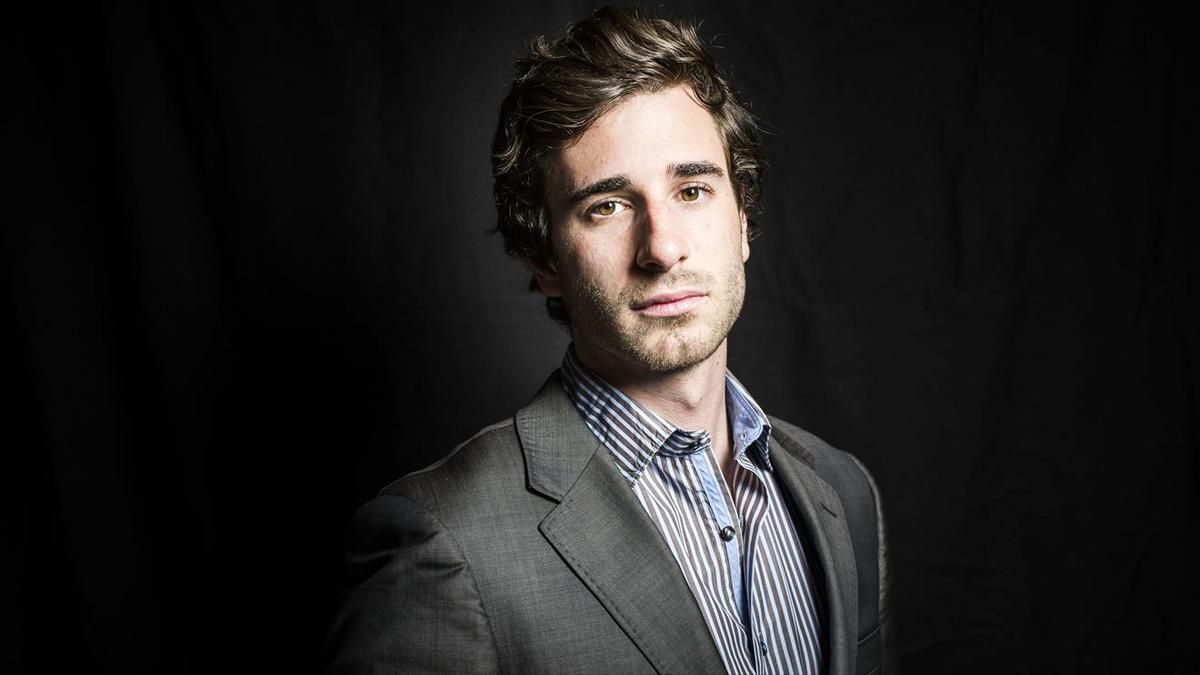Rochedy harbors a deep-seated longing to be taken seriously as an intellectual. Which is why he says he wants to quit his current job — as, essentially a young and pretty face — and pen a book, which he will describe only as “very polemical.”
“Voters are turning to [the FN] as an alternative to the traditional parties, and they are moderating their discourse to be more appealing. Julien is part of this new effort to give the party a makeover,” says Loïc Blondiaux, professor of political science at the Sorbonne University in Paris.
In Rochedy’s world, France suffers from three main maladies: an overly powerful European Union, a dangerous tide of immigration and the loss of “traditional values.” As for the EU, it’s making too many decisions for his country, and he resents the fact that France can’t control its monetary policy because of the euro. “France is undergoing a total loss of freedom,” he says. “It’s a big and beautiful country, but it’s no longer the master of itself.”
But unlike other right-wing politicians, Rochedy has an uncanny ability to discuss these issues without sounding hyperbolic or pissed off. Instead, he’s great at turning concepts on their head. “Today’s immigration is a new form of slavery. Bringing people here to do jobs that we don’t want to do or having children for us, it’s gross. I’m a humanist. So I much rather everyone stays in their own home.”
He often appears in debate shows where he leaves his rivals silently baffled with arguments like one he told OZY: “There are more doctors from Benin in France than there are in Benin. I, for one, think Benin needs them more than we do. Right?”
Still, he recently provoked a storm of criticism for saying he would favor a law to ban “homosexual propaganda.”
“The strategy of the Front National these days is to try and appear as a party like any other, but they are not,” says Laura Slimani, president of the Socialist Youth. “The times change, but they remain just as extremist and homophobic.” Rochedy, however, always has an answer: “I am not a homophobe. I think homosexuals have the right to practice their sexuality, but it’s something fatal for society because a nation needs to reproduce in order to ensure its continuity.”
His own beliefs began with Friedrich Nietzsche. He cites a “crisis in values,” a concept he encountered when he started reading Nietzsche at age 14; he went on to consume all the Nietzsche he could find. “Nietzsche talks about values that are symptoms of decadence and mediocrity versus values that emerge from grandness, willpower and strength,” says Rochedy. “He completely changed the way I saw things.”
He discovered the FN, founded by current leader Marie Le Pen’s father, Jean-Marie, as an 18-year-old student of political science in Lyon, in the south of France. “I liked Le Pen because he was a rebel and he was not afraid to shock people.”
At the time, 2006, few believed the right-wing movement could become a mainstream political force. Eight years later, the Front National got two members in the Senate for the first time and topped the polls in the European Parliament election, with 25 percent of the vote — an eightfold gain on the last one.
Rochedy thinks increasing youth engagement is key to his party’s success, and that’s precisely why he wants to step down as head of the youth branch. “I’m not really young anymore,” he says, “and I’ve been wanting to focus more in the intellectual side of things for a while. History is made by great men, not small politicians.” TV producers and female fans will miss his regular appearances on screen, and he admits he might miss it too. “It’s fun to crush your enemies. It’s good for the ego,” he says, while holding open the possibility of returning to politics later.
But it’s a long road toward becoming a thought leader. Especially when your epithet isn’t exactly one of intellectual heft — Rochedy is, for now, best known in the terms a gay news blog put it: “Young, beautiful and dangerous.”

/image%2F1150954%2F20140718%2Fob_66c381_header.png)
